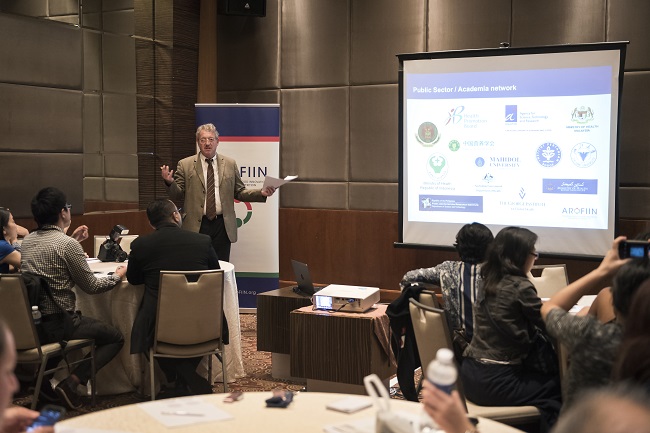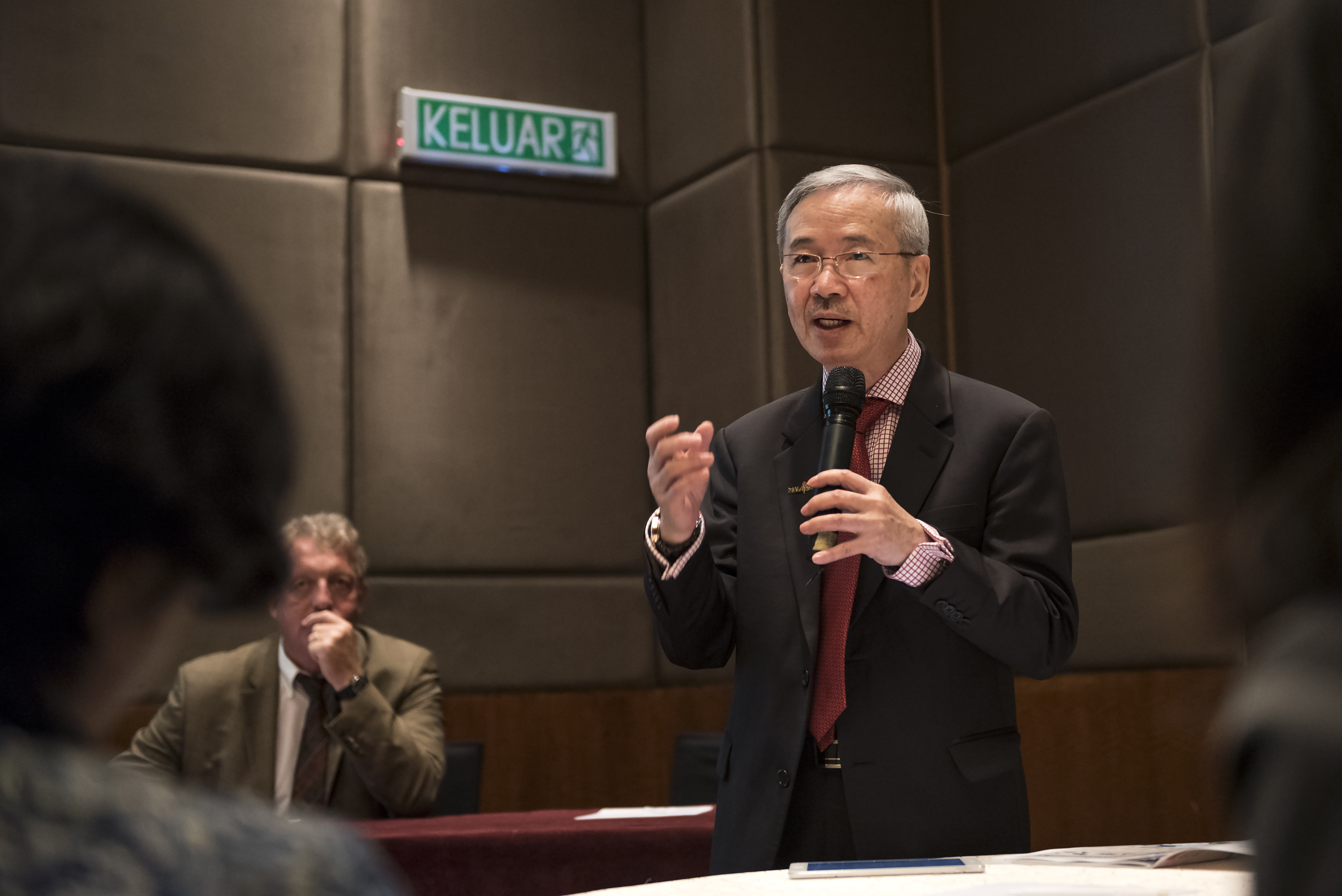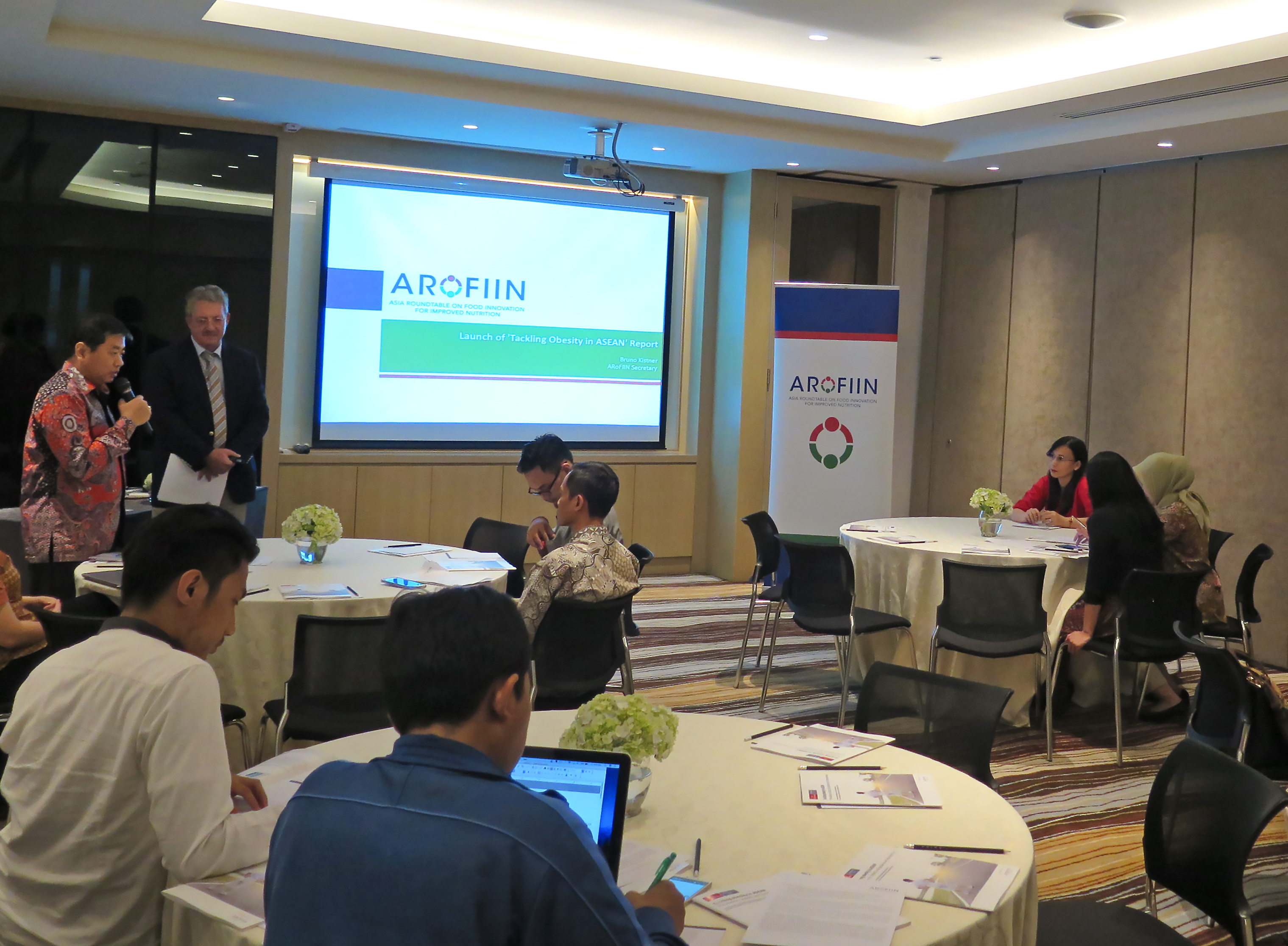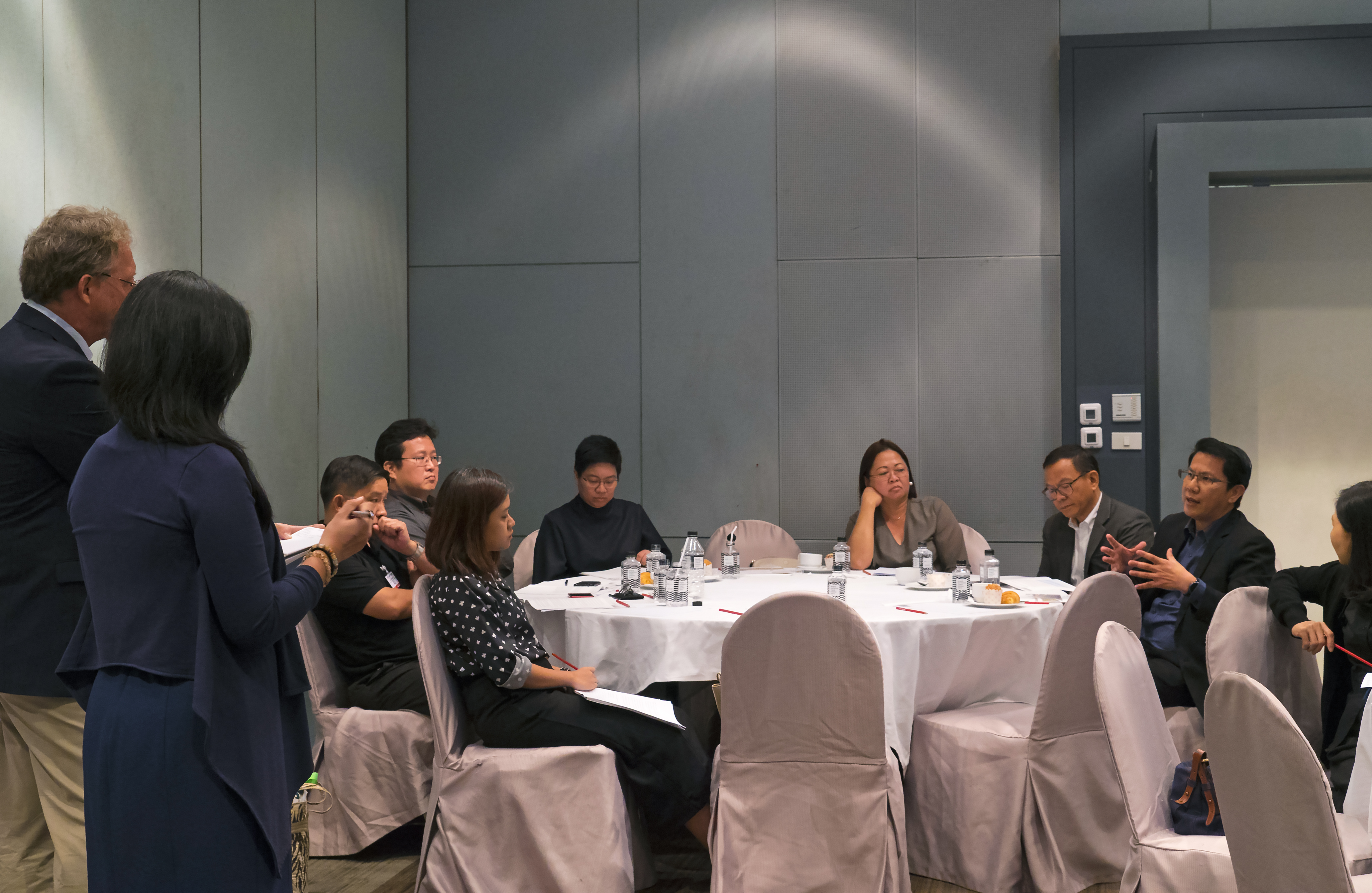
News & Events
Obesity in ASEAN: A Call to Action
The newly released “Tackling obesity in ASEAN: Prevalence, impact, and guidance on interventions” report states that obesity affects women more than men in all six ASEAN countries sampled – Singapore, Malaysia, Indonesia, Thailand, Philippines and Vietnam; and that prevalence rates are higher among Indians and Malays, rather than Chinese, in Malaysia; and higher among urban dwellers in Indonesia, as compared to those living in rural provinces.
Commissioned by the Asia Roundtable on Food Innovation for Improved Nutrition (ARoFIIN) and produced by the Economist Intelligence Unit (EIU), the report was launched in Singapore on 1 June 2017, where Dr Simon Baptist, the EIU’s Global Chief Economist and Managing Director of the organisation’s Asia consultancy arm, presented key findings. Extending from the kick-off in Singapore, the ARoFIIN Secretariat has launched the report in Malaysia, Indonesia and Thailand.
The Malaysian launch took place on 6 June in Kuala Lumpur. Mr Bruno Kistner, ARoFIIN Secretary, addressed representatives from government, academia, industry, news media and civil society sectors.

Mr Bruno Kistner, Secretary of the Asia Roundtable on Food Innovation for Improved Nutrition (ARoFIIN), introduces ARoFIIN to participants at the report launch in Kuala Lumpur, Malaysia, on 6 June.
Malaysia, Mr Kistner reported, has the highest obesity (13.3 per cent) and overweight (38.5 per cent) prevalence across all six countries studied, according to the latest estimates by the World Health Organization (WHO). Fat and sugar intake in the country increased by 80 per cent and 33 per cent, respectively, between 1960 and 2005, and one-third of the adult population has ever exercised, with only 14 per cent performing adequate levels of physical activity.
As a result, the obesity problem in Malaysia, according to the report, costs the nation approximately US$1-2 billion on an annual basis – the highest overall cost (direct and indirect) of obesity as a percentage of healthcare spending (between 10-19 per cent) among the six ASEAN countries in the study.
“In this fight against obesity, we need series, systematic intervention pairs with a multi-disciplinary, multi-stakeholder approach,” said Dr Tee E Siong, President, Nutrition Society of Malaysia, an ARoFIIN partner who was present at the event.
“The key word is discipline when it comes to eating and exercise”, Dr Tee added, emphasising the need to boost physical activity and nutritional education in schools.

The report was launched on 9 June in Jakarta, Indonesia, in partnership with the Indonesian Food & Beverage Entrepreneurs Association (GAPMMI).
Indonesia, Mr Kistner said, faces the second-highest prevalence of obesity among the six countries in the study, with a rate of 24.5 per cent – 28.4 per cent among females and 20.6 per cent among males. Cultural and social norms, food availability, infrastructure, as well as behavioural changes, have led to more sedentary lifestyles and snacking habits.
For example, a larger working population means that people spend more time on commuting and less time on food preparation; some local cultures consider it shameful for a mother to have a thin child; children are typically given free reign when it comes to TV, and therefore watch excessive amounts of television; and the physical environment in-country, with few sidewalks and parks, is not particularly conducive to physical activity.

Mr Adhi Lukman, Chairman, Indonesian Food & Beverage Entrepreneurs Association (GAPMMI), opens the report launch on 9 June in Jakarta, Indonesia, with a welcome address.
The report launch in Thailand was held on the sidelines of the ProPak Asia 2017 conference, and took place on 14 June in Bangkok.
Mr Kistner shared that because Thailand if experiencing increased urbanisation, longer life expectancy and reduced malnutrition, adult overweight in the country rose from 26 per cent in 1995 to 35 per cent in 2009. By 2011, cardiovascular diseases and stroke were the leading causes of death in Thailand.
Experts believe that, fortunately, governmental awareness of Thailand’s obesity and overweight problem is increasing and after many years of focusing on undernutrition, is beginning to prioritise efforts to tackle obesity. In this vein, apart from top-level national working plans, Thailand has mounted several public awareness campaigns involving the government, academics and non-governmental organisations (NGOs).

Mr Kistner takes questions from participants at the report launch in Bangkok, Thailand, on 14 June.
The EIU evaluated interventions in four key categories – activity, food, physiology and psychology – added Mr Kistner. Aspects of the first three categories showed the greatest promise; those that showed a high magnitude of population impact were physical activity; and concerning food intake, school and workplace policies, controlling portion size in processed and pre-packaged foods, and taxation.
At the same time, the most effective interventions are hardest to design, said Mr Kistner, citing the EIU findings. Interventions that target food intake and activity, nonetheless, showed the greatest promise in the fight against obesity.
The Asia Roundtable on Food Innovation for Improved Nutrition (ARoFIIN) leverages on public-private partnership to bring together experts from across government, academia, industry and civil society sectors across Asia, to initiate and sustain regional, multi-stakeholder dialogue on the role of food innovation in tackling obesity and chronic disease in Asia. ARoFIIN is convened by the Agency for Science, Technology and Research (A*STAR), Health Promotion Board (HPB) and Food Industry Asia (FIA).

